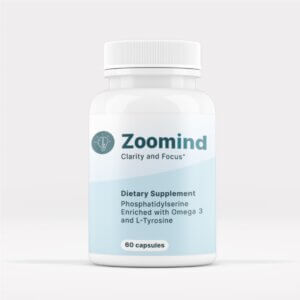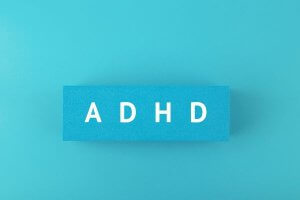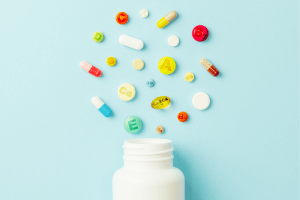The realm of dietary supplements covers things like vitamins, minerals, fiber, meal replacement shakes and herbal remedies. They are marketed in tablets, capsules, soft gels, gel-caps, powders, and liquids.
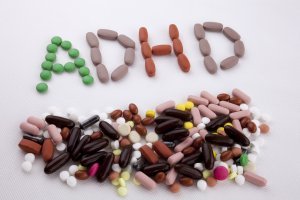
Many people take food supplements with the belief that they maintain health or prevent disease. In other cases, such supplements are used to treat specific health conditions that have already developed.
In some sense, the jury is still out on the subject of whether common dietary supplements can have harmful side effects. On the one hand, there is scientific evidence that many diseases and illnesses are caused or aggravated by dietary deficiencies. These can be relieved or even cured by adding suitable supplements to the diet. However, in some cases, there is some agreement that too much intake of some dietary supplements can be dangerous because they lead to toxic levels of some poisonous substances in the body.
So the first point we must make is that even the most beneficial dietary supplements can have side effects if not taken in proper dosage. Always talk to your health professional or friendly pharmacist when considering whether a particular dietary supplement is suitable for your needs. Be sure to include all information about any other medications you are taking and your health issues, and follow their advice about dosage.
What dietary supplements can make you worse rather than better?
There are foods, vitamins and minerals that can seriously affect your health for many different reasons.
Does it interfere with your prescription medication?
The most frequent cause of unforeseen effects is when the supplement interferes with some other essential medication that you may have been prescribed.
The US Food and Drug Administration has published advice on this subject. Some of the more important guidelines are:
- dietary supplements can change the rates of absorption, metabolism, or excretion of a medication and therefore affect its efficacy
- combining dietary supplements and medications could have dangerous and even life-threatening effects
- Some supplements, such as Ginkgo Biloba and vitamin E, perform the same blood-thinning action as warfarin and aspirin. Taking either of them together with the prescribed medication can increase the possibility of internal bleeding or stroke
- Dietary supplements can interfere with special medications you need to take before, during or immediately after surgery
- In particular, pregnant or breastfeeding women should discuss any dietary supplements with their health care professional or pharmacist.
Can you overdose?
People tend to think of dietary supplement as “natural”, which means that it is automatically safe. However, many dietary supplements can be toxic if taken in excess. A few of the most common examples are vitamin A, vitamin D and iron.
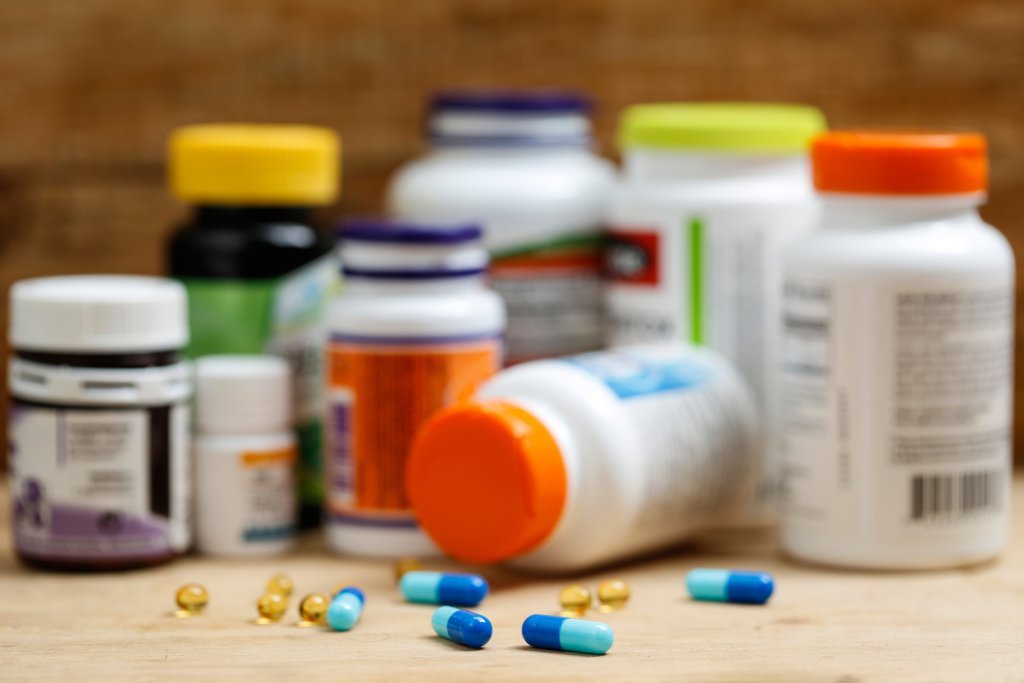
Vitamin A has many essential functions. It is required for producing photoreceptor pigments in the back of the eye. It helps maintain skin tissue and is essential in several metabolic processes. Excess levels of the vitamin can result in elevated intracranial pressure, tummy pain, nausea and vomiting. In some cases, the skin peels.
Vitamin D is necessary for bone and teeth formation from calcium, some immune functions, and protecting muscle health. The primary result of excess vitamin D is the buildup of calcium in the blood, causing nausea and vomiting. It can lead to the formation of calcium stones in the kidneys.
Iron is essential in the carriage of oxygen throughout the body. Low levels of iron cause anemia, but within a few hours, overdose can lead to diarrhea and abdominal pain, vomiting. In more severe cases, it can cause seizures, coma and, if left untreated, multi-organ failure and even death.
Calcium is essential for building and maintaining teeth and bones. Too much may result in constipation and can interfere with the absorption of other essential elements like iron and zinc and increase the chances of kidney stones.
Folic acid is needed to make red blood cells. While there are no direct effects of toxicity from high doses, it can mask some other conditions, like vitamin B12 deficiency, which may then go untreated.
Kava herb is a popular treatment for anxiety, mainly in the Pacific ocean and southern hemisphere regions. Overdoses can cause liver damage, like hepatitis, cirrhosis, and liver failure.
Soy protein isolate (SPI) is a highly processed protein powder almost 100% cholesterol-free and containing minimal carbohydrates or fat, used as an infant formula milk substitute and dairy alternative. The manufacturing process involves many extreme chemical reactions. The end product has residues of chemicals and metals like aluminum and hexane. Even the usual dosage can interfere with metabolic processes involving iron and zinc.
Can you combine dietary supplements in a dangerous way?
Some people take more than one dietary supplement, either to treat different conditions or because one on its own is not sufficient. However, it’s not always the case that “mix-and-match” will work perfectly. Certain dietary supplements work antagonistically, either canceling each other out or combining in some sinister way to produce a negative effect. Some of the most prominent of these are:
Magnesium and Calcium
They work together to promote healthy bones. Magnesium boosts the absorption of calcium. Unless they are taken at least two hours apart, the calcium will build up to toxic levels leading to arthritis.
Copper and zinc
At one extreme, low levels of zinc can interfere with copper absorption, but high doses of zinc over more extended periods can, in fact, cause copper deficiency, leading to anemia, osteoporosis and other bone defects, and higher risks of infection.
Multivitamins

Multivitamins are meant to contain the appropriate levels of both vitamins and minerals, in the correct levels where they can work together. However, you could be getting the wrong mix of a specific vitamin or mineral if you’re taking it in another direct form, and it works antagonistically with the multivitamin mix.
For this reason, tailored vitamin or mineral supplements supporting your individual deficiencies may be better than multivitamins.
Omega-3 and Ginkgo Biloba
Omega-3 fatty acids help control body weight, reduce cholesterol and assist in age-related memory loss and ADHD. Ginkgo biloba is supposed to improve general memory – although the efficacy has not yet been proven. But they both act as blood-thinners. Taking them in combination can reduce blood clotting and increase the risk of uncontrolled bleeding.
Iron and green tea
Mixing iron supplements in some beverages, like cold milk or tea, stops your body from absorbing the metal. The calcium in the milk interferes with iron absorption, while green tea can lead to iron deficiency.
St. John’s Wort and Melatonin
St. John’s Wort has been used for ages as an analgesic and sedative. Melatonin is a potent natural sleep inducer. If used in conjunction, they can seriously interfere with the natural sleep cycle.
What dietary supplements should you avoid with your medical condition?
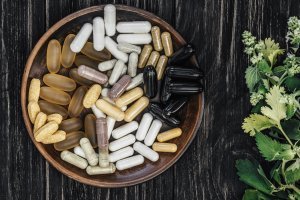
You may be unaware that some herbs interact with prescription drugs, viewing them as natural without possible side effects. Still, there can be dangerous consequences from mixing them.
People with diabetes should avoid the herb fenugreek. It affects blood sugar levels without the level of control of proper diabetes medications. This can lead to dangerously low levels of blood sugar if the two are taken simultaneously.
In addition, if you’re on anticoagulants such as warfarin, melatonin or fenugreek can be dangerous because it may also slow blood clotting.
You should avoid St. John’s Wort if you are already taking antidepressants. It may elevate serotonin levels, and that leads to seizures. As well, women on birth control and anyone on blood thinners should also take care.
Melatonin acts in the same way as sedatives like benzodiazepines making you even more drowsy.
Prednisone is a very widely used drug, acting as an immunosuppressant in treating conditions such as inflammation, arthritis, lupus, ulcerative colitis and many more. Echinacea interferes with prednisone because it works in the opposite way by stimulating the immune system.
Schisandra is a traditional Chinese herb used for many curative and life-extending benefits. However, it is to be avoided by pregnant women as it might cause miscarriage. It may also increase the incidence of epileptic seizures, peptic ulcers by raising levels of stomach acid, and elevate intracranial pressure where this is already present.
How likely are you to take both medication and a supplement?
The National Center for Health Statistics – part of the Centers for Disease Control and Prevention (CDC) did an exhaustive three year study of this in the first decade of the century. Fully one third of respondents – that’s equating to 72 million people – are reported to be taking some kind of dietary supplement along with prescription medication. So this is an issue to be considered seriously when thinking about the side effects of dietary supplements.
What foods should be avoided when taking dietary supplements?

There’s not been enough research for scientists to be able to answer this question with any degree of certainty. What we have been able to find out is that taking your supplements with or without food, and at a specific time of day, can be important both in how effectively they work and in whether they may cause some adverse actions.
In summary, the findings have been:
The earlier, the better – it’s better to take supplements in the morning, according to scientist Dr Jeffrey Blumberg of Tufts University, taking your dietary supplements at night isn’t advisable because “digestion slows down during sleep, so taking your nutrient supplement late at night would not be associated with an efficient absorption.” As well, B vitamins stimulate brain functions and would tend to spoil relaxation before bedtime.
On the whole, with food is better than on an empty stomach. This is especially the case for iron, omega-3 supplements, zinc and magnesium. All of these can upset an empty stomach, so they should be taken with a meal or snack.
Vitamins A, D, E and K are all fat-soluble, so you need some food containing about 5 grams of fat.
Some vitamins need lots of liquid to fully dissolve, especially vitamin C and all the Bs, so at least 100 ml (3.5 fl oz) of water or orange juice is required,
Foods to limit or avoid when taking dietary supplements
- Caffeine
- Artificial additives
- Prepackaged and processed products containing artificial coloring, flavors, and preservatives
- Sugar
Final thoughts on dietary supplements
Dietary supplements can have many benefits and will be good for you as long as you use common sense. Always follow the guidance of your healthcare provider and friendly pharmacist. Make sure to take a few other sensible steps:
- Always read labels carefully – looking for appropriate ingredients and nutrition labeling. Beware of any products that make unrealistic boasts of results or benefits.
- Remember that wording like “natural” or “organic” does not mean that the product comes without adverse effects and is automatically good for you. Everything you take has the potential for some side effects or interaction with your medications.
- Tell your doctor and pharmacists about all the other medications you are taking.
